
24 minute read
Around the Table: Principal’s message, Heard in Assembly, scholars in residence and more
we do so with a deep appreciation for the girls and women who pushed Exeter forward and redefned how we interpret “youth from every quarter.” I encourage you to read some of their stories in this magazine and on exeter.edu/coeducation.
We bring the same determination and resolve to our work to become a fully inclusive, equitable and anti-racist community. This work is fundamental to our mission and requires active, sustained participation from every member in our community. I am grateful for the foundation laid by those who came before us, and for the adults and students who today are greatly expanding upon those eforts, both inside and outside the classroom. The conversations we are having, and the commitments we have made, are essential to what we want Exeter to be, now and in the future. I invite you to visit exeter.edu/diversityvision and exeter.edu/antiracism to learn more about our vision for diversity, equity and inclusion, and to see some of the work being done this year.
The Academy was founded on the philosophy of non sibi — a belief that the “wisdom gained here should be used for others as well as for oneself,” as expressed in our value statement. “Teaching and living the principles of a just and sustainable society,” it continues, “are fundamental to this philosophy today.” The education gained here is an avenue for transformative individual growth informed by a deep sense of public purpose.
As you read this issue of the Bulletin, I hope you will see that we are busy building on our strengths, living our values, and imagining the Exeter of tomorrow. We see exciting opportunities in the years ahead for our school, and we look forward to working with every member of our community to turn those opportunities into realities for our students. E
CHERYL SENTER
Letters to the Editor
A NAME WITH THE FACE PIONEERING FACULTY
In assembling the fall 2020 issue of the Bulletin, the editors zeroed in on a transfxing image for the cover. The photograph is of a solitary young woman seated at a Harkness table, her gaze fxed on the camera lens, her thoughts her own.
The image, shot by longtime Academy photographer Bradford Herzog, is cataloged in the school’s archives simply as “Girl in Classroom, 1971.” Her identity was a mystery to the editors — but not to our readers.
We heard frst from Instructor Emeritus in History Jack Herney ’46, ’69, ’71, ’74, ’92, ’95 (Hon.), who tipped us of on a lead from his wife, Susan Herney ’69, ’74, ’83 (Hon.), the school’s frst female dean of students. Her sleuthing of the Academy’s old student directories, or “Facebooks” as they were once known, led Herney to guess that the girl pictured was Kim Beaty ’73.
Paul Outlaw ’74 soon followed the Herneys’ email to the editors with his own: “That wonderful Bradford Cover girl: Kim Beaty ’73. Herzog photo is of the one and only Constance Peck Beaty (aka “Kim”) ’73, whom I remember fondly as a talented budding artist and kind person.”
“Yes, that’s me,” Beaty confrmed to us. “It was fun to get the magazine. What a jolt as I took it out of my P.O. box!
“I’m not sure what class I was in. I have a dim memory of someone coming into class at the Academy Building, and I am suspecting English (best guess is Mr. Heath’s class, but could be Mr. Marriott, or Miss France) judging by the books in front of me. Possibly French? … But, really, who knows?”
Thanks to all who helped ID our cover girl. We’ll make sure our archives are updated. The [fall 2020] issue was excellent, but I noticed one error that you should correct. I believe you meant Pat Peard, not Beard, in the list of teachers on page 56 (“Pioneers: The Faculty Members Who Opened the Doors for Others”).
Ms. Peard was an exceptional teacher and deserves to be remembered. She taught history, and in one course, we covered the Third Reich and grappled with the question of collective responsibility and individual guilt. In that, she managed to get Gisela Warburg Wyzanski, wife of the top federal circuit court judge in Boston and an Exeter graduate, to come and speak to us about her childhood in Nazi Germany and the family’s journey to the U.S. She was a member of two of Germany’s most prominent families, the Oppenheimers and the Warburgs, both Jewish, and the story she told was chilling. I believe that all of us there learned lessons for a lifetime in this most grown-up and sobering session on citizenship. David Pfeifer ’76 London Editor’s note: Thank you, David. Patricia Peard taught history at the Academy for a decade beginning in 1975. Our apologies for the error.

FIRST FEMALE TRUSTEE
On page 47 of the fall 2020 issue, I suddenly came upon a picture of myself as the frst woman trustee at Exeter. I was a freshman dean at that point at Bryn Mawr and age 35. I enjoyed my time at the school very much, especially my fellow trustees and some of the faculty I got to know. My only problem was that there was no “ladies’ room” within miles of the building we met in — so I just decided to make the men’s room my own when needed. The school has certainly come a long way in supporting its female students. When I spoke with students in those early days, they always would say “the school” or “they” and I would try to get them to say “my school” and “we.” But those were many years ago.
Mary Patterson McPherson
President Emeritus, Bryn Mawr College
Bryn Mawr, Pennsylvania
EXETER DECONSTRUCTED
THE SCHOOL WE LOVE IN DETAIL
By Patrick Garrity
The Bancroft Flamingo
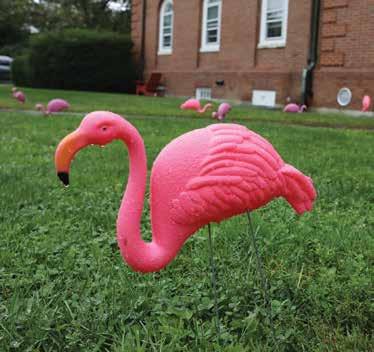
Most Exeter customs are sanctified by doctrine or decree and oficially hallowed by time. And then there’s the tradition that is the legacy of a lark between a father and daughter on a road trip to Maine.
The story of how an icon of American lawn kitsch came to represent the first girls dorm on campus emerged after the fall issue of the Bulletin included a photo of Bancroft Hall proctor Marymegan Wright ’21 planting plastic flamingoes at the dorm’s entrance on move-in day.
Allyson Mendenhall ’86 saw the photo and sent us a letter to share the tradition’s origin: “Circa 1985, my dad came to visit, and as we drove into
Maine for a little exploring, I saw plastic pink flamingoes on lawns for the first time.
We didn’t have that kind of thing in my hometown of Aspen. My dad thought it was hilarious that I was sheltered from this ubiquitous lawn ornament and promptly pulled over at the next hardware store we passed to buy a pair for me. I came back to
campus after the weekend and put them in the lawn in front of Bancroft. Thus started a tradition: boys dorms stealing them in the PATRICK GARRITY
dead of night, the flamingo gracing dorm T-shirts, the entire dorm sporting pink tie-dye T-shirts and shorts for Field Day senior year, etc. ... I can’t believe it’s still a tradition and the dorm has an enduring mascot 35 years later!” E
CHERYL SENTER
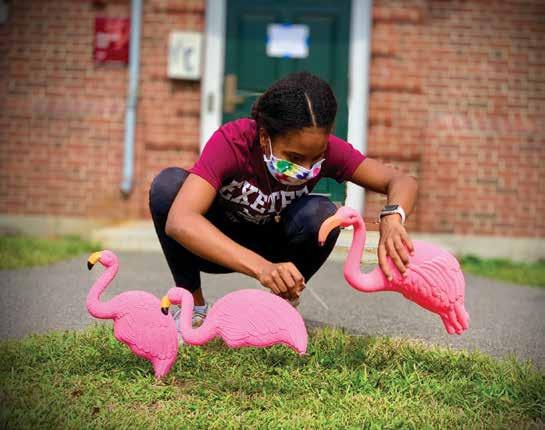
#unsung heroes
MATTHEW NGAI ’21 HONORS THE PEOPLE BEHIND THE SCENES
WHO KEEP EXETER RUNNING AND EXONIANS SAFE AND WELL
By Patrick Garrity
They keep the paths clear and the lights on. They prepare the meals, clean the dorms, and ensure our community remains healthy and safe. They are the unsung heroes of Exeter, and Matthew Ngai ’21 wants to make sure they get some credit.
The senior from Lambesc, France, is using the Academy’s Instagram account as a vehicle to celebrate the “many employees working in behind-thescenes capacities who are tasked with keeping this school up and running day after day.”
Ngai pitched the project over the summer in the hope his fellow students “could have a greater appreciation of the
privilege that we enjoy and sometimes take for granted. I really believe the school’s employees deserve more recognition, and it only feels right to do this project for them.”
Of his frst subjects, the staf at Lamont Health and Wellness Center, Ngai wrote: “The health center staf has always worked tirelessly to keep our community safe and well, and the pandemic has only made the job more challenging.”
He called Mailroom Supervisor Joe Goudreault and his team “an even more vital conduit between students and the outside world” because of the isolation of a closed campus.

Ngai’s posts have reached thousands of people and have prompted an outpouring of praise for those he’s featured.
“Joe is absolutely fantastic,” wrote Ayush Noori ’20 of Goudreault. “He cares deeply about the students! Lucky to have him on campus.”
Said Nicie Panetta, a class of 1984 graduate and a former president of the Trustees, on a post about Jim Lombardo, the lead central heating plant technician at PEA: “Thank you, Mr. Lombardo, for your decades of hard work and expertise in keeping our Academy family safe and warm!” E


Physician-Scientist Honored
EMERY N. BROWN ’74 RECEIVES JOHN AND
ELIZABETH PHILLIPS AWARD
Watch the award assembly video at exeter.edu/emerybrown.
By Jennifer Wagner
Emery N. Brown ’74 is not only the world’s leading physician-scientist in the feld of anesthesiology, but a true pioneer. He is one of only 25 people — and the frst African American, the frst statistician and the frst anesthesiologist — elected to all three branches of the National Academies: Medicine, Sciences and Engineering. For his paradigm-shifting contributions to statistics, neuroscience and clinical medicine, Academy Trustees honored Brown with the 2020 John and Elizabeth Phillips Award during a virtual assembly in October.
Speaking from his desk in Jeremiah Smith Hall, Principal Bill Rawson ’71; P’08 opened the community-wide Zoom webinar announcing, “This is without a doubt one of the most exciting and important days of the school year because this is the day we present the Academy’s highest honor.”
Trustee and General Alumni Association President Janney Wilson ’83 delivered the award citation detailing the signifcance of Brown’s life work. “You have broadened our understanding of how drugs infuence neural networks in the brain to achieve unconsciousness and have improved the comfort and safety of millions of surgical patients,” she said. Beyond the operating room, she added, Brown’s discoveries have ofered insights into possible cures for some of the deepest forms of human sufering: addiction, dementia and depression. Quoting a colleague, Wilson said, “[Dr. Brown’s] scientifc contributions are profound enough to shed light on that which makes us most human — consciousness itself.”
Brown accepted the award remotely from his home in Massachusetts with humility and a deep sense of gratitude. “I just feel that Exeter giving me this award is ironic because [the Academy] has given me so much,” he said. “I just can’t emphasize enough how much Exeter has contributed to me and my success.”
Brown was a fnancial aid recipient while at Exeter and graduated in 1974. He went on to receive a degree in applied mathematics from Harvard before earning a doctorate in statistics along with a medical degree at Harvard Medical School. For the past 30 years, he has simultaneously practiced as an anesthesiologist, studied neuroscience and published more than 400 original papers, inventing and patenting landmark scientifc and medical technologies. Sharing his fndings is as important to Brown as developing them. He is a frequent lecturer, presenting in Spanish or French when he is abroad. He currently teaches medical engineering and computational neuroscience at MIT, as well as anesthesiology at Harvard Medical School. He is the only person to hold simultaneous endowed chairs at both of these institutions. Coming close to tears, Brown concluded his remarks with heartfelt sentiments of gratitude. “Exeter helped me become basically who I am,” he shared. “One of the things that happened was, by coming to Exeter, I realized I could actually accomplish things. I wasn’t just a kid in Florida dreaming about things. I was now a kid from Florida going to Exeter and Exeter showing him that dreams could come true.”
At the class of 1974 after-party, hosted by Gonzalo Rodriguez ’74, the class presented a crystal vase etched with the Exeter lion rampant to Brown and his wife, Virginia. Class President Constance Hamilton Jameson noted to Brown, “At Exeter you earned the name ‘Vitamin E’ — energy, excellence, extraordinary talent — adding spirit, speed and power to the team. We are delighted to share our Vitamin E with the world. You have made the world a better place.” E
Since 1965, Academy Trustees have presented this award to an Exonian whose life and contributions to the welfare of community, country and humanity exemplify the nobility of character and usefulness to society that the founders sought to promote in establishing the Academy. The award was renamed in 2019 to acknowledge Elizabeth Phillips’ role as co-founder of the school.

In the Presence of Poets
REFLECTIONS ON THE IMPACT OF THE LAMONT POETRY SERIES
By Daniel Zhang ’22
It makes sense that the Academy’s twice-yearly Lamont Poetry Series readings ft so well within the frenetic groove of Exeter. Harkness, after all, is fundamentally an act of listening, attention and empathy — what is required to be truly present at a reading. In the crowded Assembly Hall on a weekday night, our community is unanimous: We all dedicate our undivided attention, and the poet dedicates theirs. We are most Exonian when we are listening. Gregory Pardlo Elizabeth Alexander Arthur Sze
Exonians, past and present, have so much to be grateful for in the programs that bring the foremost writers of our time to campus. Pore over the library’s archive of Lamont Poets and see what you fnd — Mark Doty, Allen Ginsberg, Philip Levine, Patricia Smith, Natasha Trethewey, Julia Alvarez, just to name a few — and one can see the legacy of literature carved into Exeter. Climb the concave steps to Assembly Hall and know that the weight of these names once imprinted on the marble you are ascending. Stand on the assembly stage and look out, underneath glaring stage lights, and think of the fgures who have once stood on the same wooden foorboards as you now stand.
After a term of impassioned discussion over an author’s body of work, to see the writer — to know there is a real, breathing person behind their work who will answer your every question, comment and note — is an immense privilege. It is one thing to read Beyond Katrina in class. It is another to ask Natasha Trethewey a question about how the alternating prose/poetry structure informs the development of generational trauma in the Gulf Coast, to see her nodding in recognition as you speak, to see the slight pause of deep thought before she responds, to hear an answer you can’t wait to discuss in your next English class.
This live interaction is inseparable from the Exeter English experience. As a prep, good writing seems to exist on a completely other plane as to be achievable. But the opportunity to interact with master writers in almost casual exchanges has de-abstracted the deft composition of their work. I am nowhere close to approaching the agile expertise of these writers, but hearing their voices and lived experiences reminds me that they are real people, not ideas. I leave each reading with a mind full of possibility.
And this is not to say the Lamont Poet is only for writers. After a cofee discussion with Viet Thanh Nguyen in The Exeter Inn’s quiet alcove on the psychopathy of war and colonization, I have a refreshed, empathetic perspective to bring to my next history class. I can’t say that Arthur Sze’s explanation of parallel lines intersecting in the infnite as a metaphor for possibility has improved my calculus grade, but it has shown me the power of mathematical thought to model abstract concepts of humanities precisely. When I ask Ilya Kaminsky what he means when he says political and he chooses the original etymology — the Greek πολις, which simply refers to communal gatherings without the complex connotations of modern politics — I have a new dimension to bring to my Greek class discussion on Plato’s Crito. Every crevice of Exeter’s interwoven intellectual web feels the impact of the writers we bring.
Inaugural Lamont Poet Jorge Luis Borges once said, “Art is fre plus algebra.” Our instructors teach us algebra throughout the term — the mechanics of a poet’s work. But then we bring the fre right to our campus and watch it glow in our Assembly Hall. We are so close to the fre it almost burns. E
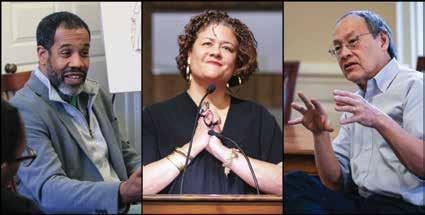
Dr. Jud Brewer
Behavioral neuroscientist, Brown University psychiatry professor
“Logically, we know we don’t need a six-month supply of toilet paper, but when we see someone else’s cart piled high, their anxiety infects us, and we go into survival mode. … In psychology, the spread of emotion from one person to another is termed social contagion. Our own anxiety can be cued or triggered simply by talking to someone else who is anxious. Their fearful words are like a sneeze landing directly on our brain, emotionally infecting our prefrontal cortex and sending it out of control.”

Heard in Assembly
SOUND BITES FROM LAST FALL’S SPEAKER SERIES
Compiled by Jennifer Wagner

Kerry Kuykendall Smith ’90, retired Navy commander
“In a ready room of 36 Naval ofcers, only three of us were women, so we couldn’t hide, we couldn’t blend into the crowd. Throughout my career there were probably some people who thought I was a quota. Many judged me before they got to know me. I spent the frst few months in each of my new assignments showing others why I was there and why I deserved to be there. That’s exhausting, but it instilled in me a high work ethic. And as others got to know me, I feel I was judged on my merits and treated equally.”
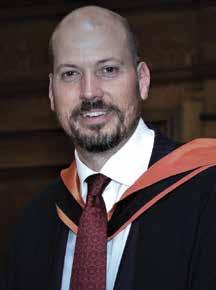
Christian-Brathwaite
Trethewey
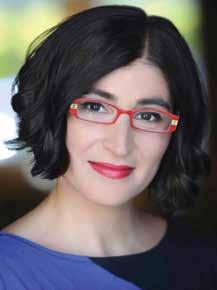
Secor Dr. Nicole Christian-Brathwaite, psychiatrist
“One of the more classic forms of microaggression is when people say, ‘I don’t see color.’ People try to use that to say, ‘I’m not racist,’ or, ‘I can’t have bias because I don’t see color.’ But realistically, we all know that everyone sees color. It’s impossible not to see color. It’s part of who we are. So when you say you don’t see color, you’re invalidating a part of who that person is.”
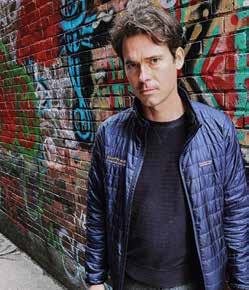
Martin Cox, economist, director of the John Locke Institute
“I’d like to ofer you three suggestions for how to listen generously. First, be generous in attributing to your opponent the very best possible motives. Second, be generous by trying to understand what your opponent really believes and why she believes it. In other words, listen as though your opponent’s opinion really matters. Third, be generous by listening as though you might actually be persuaded to change your mind.”
Natasha Trethewey, former U.S. Poet Laureate, 2007 Pulitzer Prize winner
“Though I was too young to recall the night the Klan burned a cross in our driveway, I heard the story again and again and the night lives in my memory as experience. I see it as though watching a scene in a documentary, silent, but the metal box fan in the window a whirring sound like an old movie projector.”
Dr. Alison M. Buttenheim ’87, behavioral scientist
“We had to say what ethical principles or moral values are going to guide this [vaccine allocation] decision. The three that emerged … were: maximum beneft, trying to give maximum beneft to the population; equal concern, meaning everyone’s life has equal value; and we also wanted to be evidence-based. So that was the ethical, moral soup in which we were stewing to come up with the allocation framework.”
Ketch Secor ’96, singer-songwriter
“The frst song I ever sang, at age 12, with a guitar in my lap, was Phil Ochs’ “The Ballad of Medgar Evers.” Not knowing any chords, I used my thumb to bar the fngerboard and, moving between the frets, I could recognize Phil’s simple melody. That I could only play it on two strings didn’t bother me. I was singing a hard-hitting tune about a Black civil rights leader’s murder. I was singing something that needed to be sung.”
Negin Farsad, comedian
“Lucille Ball gave me a vision of the world that wasn’t true, but I didn’t know it. As a kid, I didn’t know that women had such a hard time and that only 28% of speaking parts went to women in television until as recently as a couple of years ago. So that was a subconscious inspiration for me, just to see a woman like that, being hilarious.” E
Cox
Buttenheim
Farsad
Scholars in Residence
DOCTORAL CANDIDATES BRING TO CAMPUS
FRESH VIEWS ON RACE AND IDENTITY
By Lissa Gumprecht
At the start of the academic year, the Academy named three doctoral candidates as the 2020-21 John and Elizabeth Phillips Dissertation Year Fellows. Established in 2013, the fellowship program was created to support Ph.D. candidates in the completion stage of their dissertation. Specifcally calling for candidates who are traditionally underrepresented in the graduate school environment, the Fellowship Committee also seeks applicants who express an interest in becoming part of an independent secondary school.
In alignment with the Academy’s mission and work around diversity, equity and inclusion, the 2020-21 fellowship selection process gave priority consideration to scholars researching topics related to race, identity and culture. In addition to their dissertation work, the Fellows deliver two online seminars to students per term and engage in discussions with any students or groups interested in their felds of study.
The three appointees represent a broad range of academic research, and their membership in the Exeter community this year promises to enrich dialogues across disciplines.
Joud Alkorani holds an M.A. in Middle Eastern and Islamic Studies from the University of Toronto, where she is completing her doctorate in the Department for the Study of Religion and the Center for Diaspora and Transnational Studies. She was drawn to the fellowship by the opportunity to share intellectual discourse with a new audience — Exeter students. “I’m excited by the possibilities that arise from exploring these questions alongside Exeter’s talented students,” Joud shared, “by what I can learn from them and by the insights that arise from doing so during such a charged moment in our world’s history.” Her dissertation, Between Fate and Fortune: Islam, Neoliberalism, and Destiny in Dubai, explores the relationship between Islam and neoliberalism in narratives of middle-class migrant Muslim women in Dubai, examining how the city transfgures Muslims’ subjectivities.
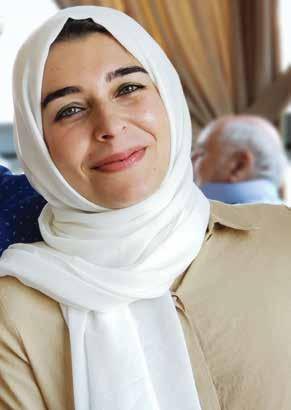
Sherard Harrington is completing his doctorate in English Literature at the University of New Hampshire. His dissertation, Othered Ambitions: The Confation of Villainy, Non-Heterosexuality, and Race in Popular Culture, focuses on the vilifcation of sexual orientation and race in 20th-century literature, graphic novels, plays and television. It builds on the work he did earning his MFA in creative writing from the University of Central Florida, where he wrote a collection of short stories and essays about coming out of the closet in a military family while overseas and in the South. Harrington has also pursued a research project in Massachusetts to uncover the histories of indigenous and African peoples who lived and fought for their rights in the Commonwealth.
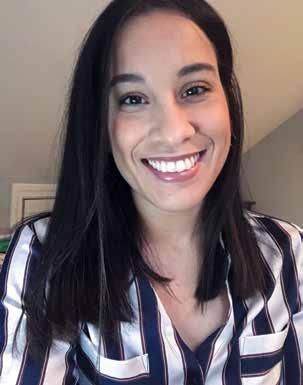

A graduate of Choate Rosemary Hall, Katherine Morales is already familiar with the unique opportunity of learning at a school like Exeter. “I have always had a love for the boarding school experience. As I learned about the fellowship, I was drawn to the opportunity to teach, mentor and share my academic knowledge with students,” she said. Her master’s degree, earned at the University of Maryland, College Park, examined the relationship between therapists’ perceived cultural humility and the outcomes of psychotherapy. Her dissertation — A Mixed-Method Study: Client Perspective of Therapists’ Missed Cultural Opportunities and Its Efect on Working Alliance and Client Session Satisfaction — also addresses how race, ethnicity and culture afect the outcomes of counseling, examining client experiences in which therapists missed opportunities to acknowledge clients’ cultural backgrounds. Her goal is to develop interventions that address disparities in treatment outcomes for minority clients and to improve multicultural competencies.
The Dissertation Year fellowship is part of a larger program at the Academy to attract scholars and educators who are traditionally underrepresented in the secondary school environment. Since 1998, the John and Elizabeth Phillips Fellowship program has appointed 27 individuals to Exeter’s faculty. These appointments are a one-, two- or three-year commitment, and several instructors have accepted an invitation to stay on after their fellowship concludes. E
Leading through Change
TABLE TALK WITH ASSISTANT PRINCIPAL KAREN LASSEY
By Debbie Kane
Whether it’s coordinating Exeter’s response to the COVID-19 pandemic or mapping out a math solution, Assistant Principal Karen Lassey P’14, P’16 is a problem-solver. “I love systems and operations,” she says. They are skills she learned as an engineer in the
U. S. Army more than 25 years ago and infuence how she tackles challenges today.
For the better part of the past year, under the leadership of Principal Bill Rawson ’71; P’08, Lassey has managed Exeter’s response to the pandemic, collaborating with colleagues from across campus. “We had to rethink almost every aspect of the student experience (and our support operations) through the lens of health and safety,” she says. “We had to think about what’s core to the Exeter experience. The biggest pieces to re-imagine were dorm living and dining but even creating spaces for day students, we had to work through how to maintain community when there are students both on and of-campus.”
The school’s greatest success over the past year, Lassey believes, has been responding quickly to meet the pandemic’s ever-changing conditions. “We were responsive to input from students and adults on campus and pivoted when necessary, reshaping our plans almost continuously,” she says. “We are a school that plans very carefully and deliberately, usually within fxed parameters, and this required a greater level of responsiveness and fexibility, with the same expectation of input from multiple constituencies. We all share a commitment to providing the best support to our students. That shared value and commitment allowed us to achieve what we did this fall, through incredibly hard work, high standards and thoughtfulness.” Lassey’s primary role during the pandemic is collaborating with Principal CHRISTIAN HARRISON Rawson and other administrators to meet their goals and “hold pieces of the planning together”: assessing resources, recommending adjustments, making sure people have what they need to meet deadlines, and communicating as decisions are made or plans shift. She oversaw the creation of Exeter’s COVID-related student guidebook and other interim communications that outlined details of Exeter’s pandemic plan. She supported the medical director, Dr. Katy Lilly, whose work, skill and dedication have been critical to the success of the school’s response throughout the pandemic. She also worked with Exeter’s ITS Department to establish a COVID-19 dashboard on the school website. In the fall, as the campus community adapted to a hybrid term, Lassey moderated virtual “town hall” panels of school leaders to keep parents updated on changes and activities. “It’s something we should continue doing,” she says. “It’s a way to communicate with families that [allows] parents to ask questions and ofer input.”
One of the greatest transformations last fall was around the Harkness table. Lassey, who has taught both physics and math during her 24-year career at Exeter, experienced those changes frst-hand when she taught “Transition 1 Mathematics.” The class began fully remote, with students both on and of campus attending via Zoom. In late October, when it was deemed safe to do






